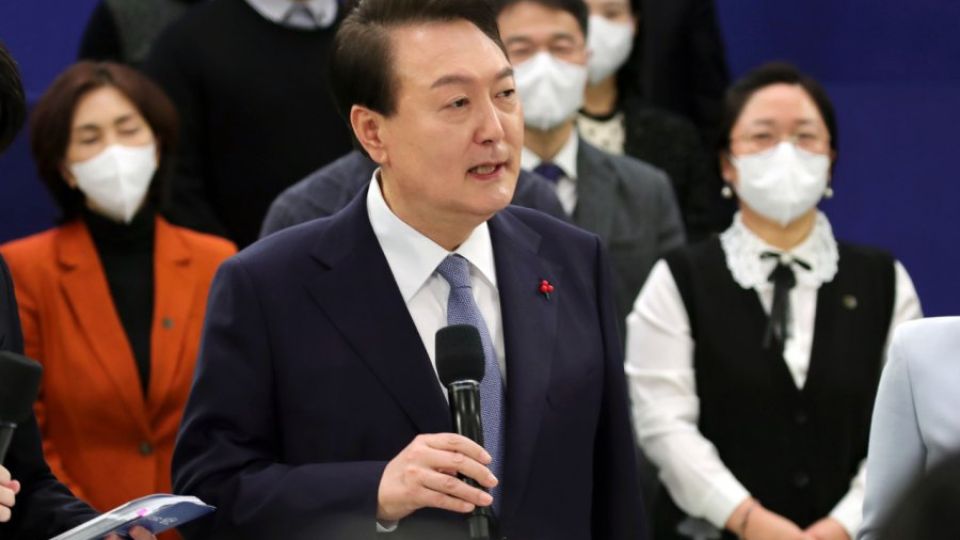December 16, 2022
SEOUL – President Yoon Suk-yeol vowed to make Korea a safe nation from sexual and drug crimes, touching on multiple economic, welfare and labor issues in a rare pangovernmental meeting broadcast live on Thursday afternoon.
In the meeting presided over by Yoon and attended by all ministers and 100 ordinary people, Yoon and his officials answered questions from a public panel in three sessions about the economy, balanced regional development and reforms to labor, pension and education policies.
“The government has been running diligently for about seven months since it was launched on May 10,” Yoon said in his opening remarks. “I think it’s time to carefully examine whether its promises with the people are being fulfilled properly and what the problem is.”
During a question and answer session between the president and the public panel, members of the public expressed concerns about diverse issues, including economic difficulties, crimes, welfare and labor reform.
When asked by a woman how the government would handle growing sexual crimes against women, Yoon vowed to “carefully design law that can strongly deal with” sex crimes, stalking crimes and violent crimes against women. He also vowed to strengthen victim support center facilities and support measures.
He then referred to a woman stabbed to death by her former colleague in September at Sindang Station, saying it was a “symbolic” case that evoked anxiety and inflicted mental damage to Korean women.
Justice Minister Hang Dong-hoon said he is considering introducing a system such as “Jessica’s Law” which prevents malicious sex offenders from living near schools with many children.
Jessica’s Law was passed in Florida in 2005. The act mandates a minimum sentence of 25 years and a maximum of life in prison for first-time child sex offenders.
When asked about increasing drug crimes in the once-drug-free nation, Yoon admitted that the prosecution neglected the issue for some time, and that only the police have been responsible for this task.
“I think it has become less efficient in the collaboration of information, investigation and prosecution (in dealing with the crimes),” he said.
The drop in drug prices means the state has not cracked down on it properly, the president said. “When the price of drugs rises significantly, it is a signal that the amount of trade is reduced and the state is strictly cracking down,” he said, adding that it is “embarrassing.”
Minister Han said student drug offenders have increased fivefold in the last 10 years.
“It’s been a long time since people in their 20s and 30s accounted for more than 50 percent of drug offenders,” he said. “Drug prices have become cheaper, and drug hallucinations have increased. It is a distinctly serious situation.”
The prosecution’s special team on drug investigation will firmly crack down on the distribution and manufacturing of drugs. “From now on, if we make a war-like effort, it can be stopped,” Han said.
When some people expressed concerns about the difficulties of attaining a house — one of the key issues that prevent young people from getting married and having a child in Korea — Yoon said house prices should rise and fall in line with market logic, but the government must adjust the pace and manage it predictably. He vowed to stabilize the housing market by adequately managing and supplying public and private houses.
However, he showed reluctance in strongly intervening in the market.
If the government supplies a lot of public rental housing, the financial burden of the central and local governments and the responsibility of taxpayers increases, which can “burden the economy and cause economic contraction,” he said.
Yoon also stuck to his housing policies, saying that taxes on multiple homeowners should be “eased.”
“It’s the market’s law that if their taxes are not eased, taxation will eventually be passed on to tenants,” he said. “It may be misunderstood that it reduces taxes on the rich, but it is trying to make conditions for tenants to pay low prices for rent.”


